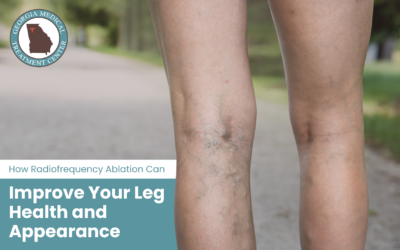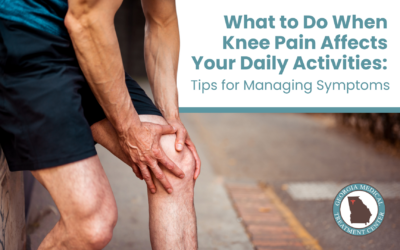Are you struggling with painful, swollen veins? Conditions such as chronic venous insufficiency (CVI) can cause varicose veins, which come with both physical and cosmetic repercussions. While symptoms can often be managed at home, they tend to worsen during travel. In this blog, we’ll take a closer look at what CVI is and how to prevent flare-ups when traveling.
Understanding CVI and Travel Risks
Did you know that healthy leg veins send blood to the heart? This helps ensure that oxygen and nutrients are delivered to tissues across your body. Unfortunately, conditions such as CVI can prevent the veins from efficiently returning blood to the heart. Instead, blood pools in the veins, resulting in pain, swelling and discoloration.
If you travel often, you may experience more severe symptoms. Travel can worsen CVI due to the following:
- Reduced leg movement: Long flights, car rides and train rides limit your ability to move your legs. This slows blood circulation, which causes blood to collect in the veins.
- Increased venous pressure: Prolonged periods of sitting put pressure on the veins, which worsens pain and swelling.
- Dehydration: Traveling may cause dehydration, which impedes circulation.
In severe cases, CVI can lead to blood clots, which are potentially fatal. To help prevent the condition from escalating, you should take safety measures when traveling.
Travel-Smart Strategies for Healthy Leg Veins
Are you worried about managing your CVI while traveling? Here are some tips to help keep your veins healthy:
- Stay hydrated: Drink plenty of water to reduce the risk of dehydration (which affects circulation).
- Wear compression socks: Compression socks help encourage blood flow and reduce swelling.
- Move frequently: Moving around helps boost circulation. If you can’t move freely, try to do seated leg exercises.
- Elevate your feet: Keep your feet elevated when possible. Resting your legs at a high level helps promote circulation.
- Dress comfortably: Avoid tight clothing (especially clothing that’s tight around the waist or thighs), as this can restrict blood flow.
- Choose aisle seats: When traveling by train, opt for an aisle seat if possible. This allows you to extend your legs.
When to Seek Medical Attention
While these tips can be highly effective, they’re not always enough to prevent CVI-related pain. You should consider seeking medical attention if you notice any of the following signs:
- Leg swelling: Also known as edema, leg swelling (caused by fluid buildup) can cause severe discomfort.
- Skin changes: Skin changes, such as discoloration, inflammation and thickened skin, may indicate an infection.
- Venous ulcers: Poor circulation can cause ulcers (or non-healing sores) around the ankles.
- Infections: Limited blood flow may lead to an infection. Common signs include chills, coughing, a sore throat and a fever.
- Reduced mobility: In severe cases, CVI may disrupt your ability to walk.
- Chronic pain: If pain doesn’t relent, or if you experience a heavy sensation, you should consult a medical professional.
As mentioned earlier, untreated CVI increases the risk of blood clots. More specifically, it can cause deep vein thrombosis (DVT), which may be fatal if the clot travels to the lungs. Fortunately, professional intervention helps reduce this risk and enhance vein health.
Finding a Vein Clinic Near Me
Are you looking for professional venous disease treatments? At Georgia Medical Treatment Center, we offer high-quality, minimally invasive vein treatments designed to deliver long-term relief. We’ll start by reviewing your medical history and symptoms. Then, we’ll create a plan that’s personalized to your pain needs.
Not only are our treatments non-surgical, but they’re also approved by the FDA. And, they’re crafted by our team of board-certified medical doctors and practitioners. With our support, you’ll overcome vein-related pain in time for your next vacation. Schedule your consultation today!




0 Comments